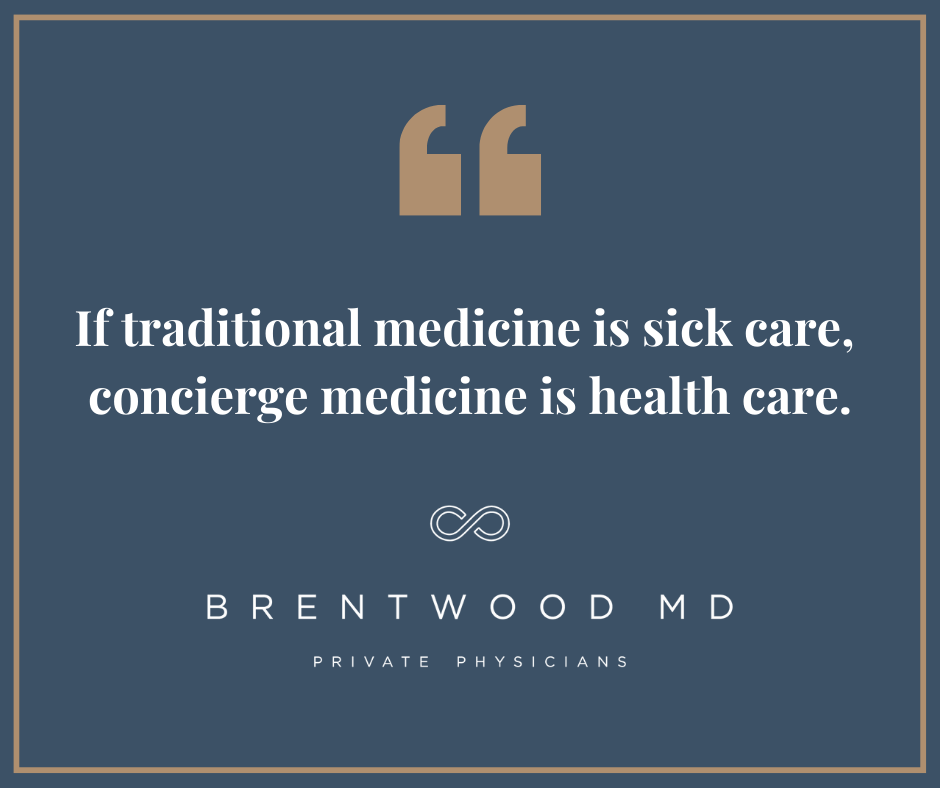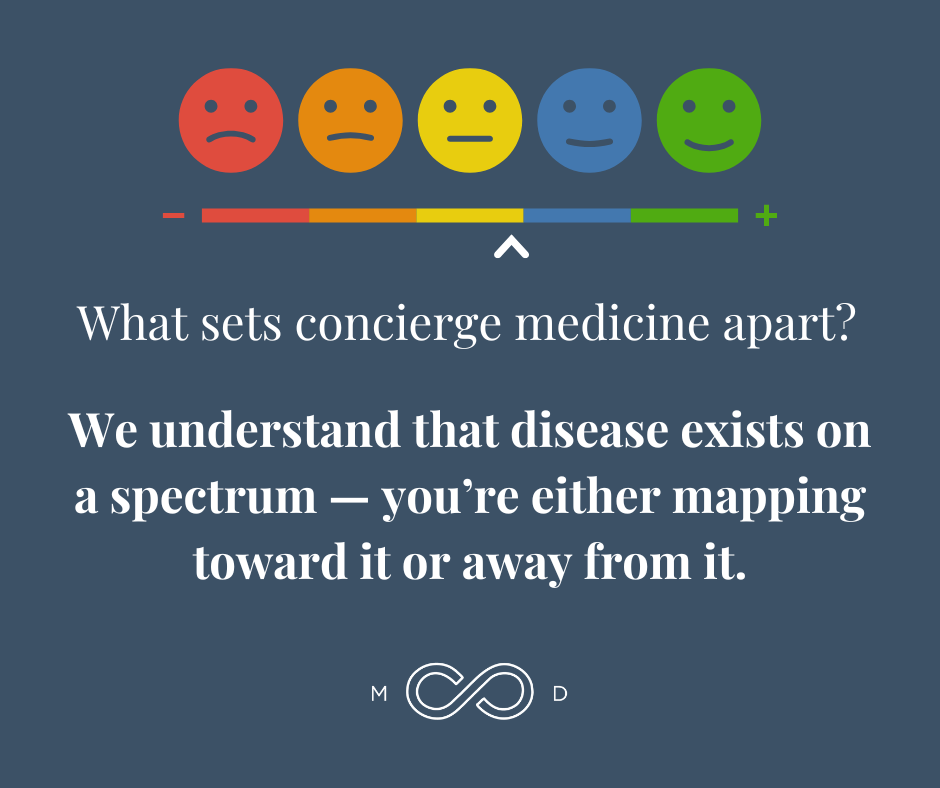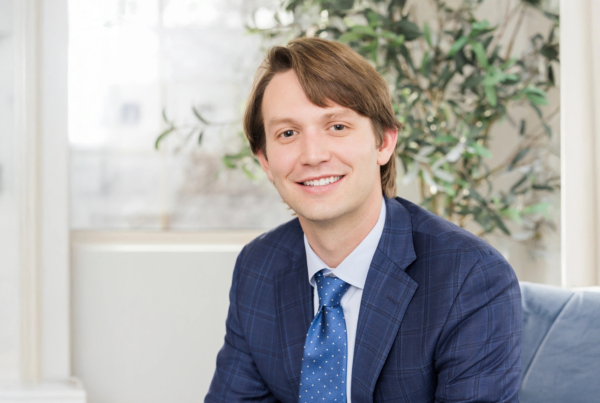People often ask what makes me as a concierge physician different from a traditional physician. I always reply, “Because I work in concierge medicine, I actually get to practice healthcare.”
I’m usually met with furrowed brows and blank stares.
Let me explain: There’s nothing health-related about the conventional care model. In fact, I like to refer to it as “sick care,” because it was designed solely to manage existing diseases.
A traditional primary care physician who wants to focus on disease reversal or cure has no incentive to do so. Instead, we’ve only incentivized management metrics. Instead of asking, “How can we cure your disease?” that physician asks, “Are we managing your disease well?”
Don’t get me wrong: I’m not anti-disease management. Management metrics are great for individuals whose disease processes are beyond reversal. My issue is that’s all our current healthcare model can do.
Why Healthcare Is Impossible in a Sick Care Model
For humans pursuing any and all aspects of health, the primary care physician is the gatekeeper. And although we call it “healthcare,” there really isn’t much our current model can do for a person who strolls into a traditional physician’s office and says, “I want to be healthier.”
Yes, that physician can throw around canned phrases like “Eat less,” “Exercise more,” “Lower your stress,” “Focus on work-life balance,” etc. But there is no incentive for a physician who wants to help a patient lose fifteen pounds.
Instead, because they’re beholden to insurance companies (and/or larger healthcare systems) for their existence, physicians are forced to check boxes to ensure they get reimbursed: “Is this person’s blood pressure considered normal? Check.” “Does this person’s BMI raise any red flags? No? Check.”
Little steps toward better health take time to implement and thus aren’t incentivized by insurance companies. The result is an incredibly robust, complex, inefficient system that incentivizes disease management rather than disease prevention.
Don’t believe me? Spend five minutes in a traditional care facility — a physician’s office, a hospital, etc. Every conversation you’ll overhear will be about illness.
Again, I’m not against disease management. Every healthcare model should have a disease management component — but it shouldn’t be the sole focus of the entire model.
The Failings of Sick Care
I have a great patient in his mid-30s who came to me a few years ago from a traditional healthcare setting. He has a family history of diabetes, and he would always ask his physician how to prevent the onset.
“Eat better and exercise more,” his physician would say, year after year, physical after physical.
My patient did just that, until one day, that same physician told him, “Your insulin resistance is off the charts. In six months, you’ll be fully diabetic. At that point, I can get you on a medication your insurance will cover.”
Needless to say, my patient was livid. For years, he had done exactly what his physician advised him to, only to realize it was all for naught. His physician couldn’t help him unless he was actively sick.
He called me minutes later from his former physician’s parking lot. I was happy to take him on as a patient. Now, he’s reaping all the benefits of having a direct, ongoing relationship with a primary care physician in a concierge setting.
How Concierge Medicine Aligns With Your Goals
If traditional medicine is sick care, concierge medicine is healthcare. In a concierge model, your North Star isn’t managing an existing disease — it’s restoring and preserving your health and vitality.
Take my aforementioned patient. The path his traditional physician put him on had mapped him toward a non-ideal health state. I was able to look at discrepancies in his existing measurements and button them up through lifestyle modifications — specifically, through diet, sleep, and behavior changes.
That’s not to say concierge physicians are anti-medication. Some of our patients’ conditions need to be righted using a medication, and we’ll pull them off of it when we think they’re ready. In other cases, we’ll use medication aggressively and early to prevent a disease we know is in a patient’s future.
That’s what sets concierge medicine apart: We don’t wait until someone has a disease to treat them; we address their pre-diseased state. We understand that disease exists on a spectrum — you’re either mapping toward it or away from it.
The sick care model simply doesn’t have the tools to route patients away from disease. It can only steer them once they get there.
It’s a vast oversimplification, but a great analogy is your vehicle’s routine maintenance. As a responsible car owner, you don’t wait until your check engine light is on to bring your car in for regular work. You perform routine maintenance in order to keep it in working order: rotating the tires, changing fluids and filters, etc.
Why wouldn’t we do the same for our bodies?
Or, think of your company’s finances: You don’t look at your books only once a year because that’s not conducive to a successful business. You check in constantly and reevaluate signals that might predict things will start going south. You have optics on aspects that matter.
It’s the same with parenting; it’s the same with marriage. Successful outcomes require you to pay attention to the “right things” every second of every day. Only then will your measurables improve.
Concierge Medicine: My Philosophy
Like any great endeavor, health isn’t something you can pursue alone.
The most important thing you can do to optimize your health journey is make sure you have the right people behind you. If your health team is only focused on moving backwards slower — instead of making active progress — it’s time to find a new physician.
You need an advocate in the concierge medicine space; someone who has similar goals and values as you and who will think critically and aggressively about your health.

Dr. Aaron Wenzel is a concierge physician specializing in the care of fast-moving entrepreneurs, executives, and public figures in the Nashville, TN area. Dr. Wenzel’s diverse life experience and extensive training in family medicine, emergency care, nutrition, and hormone replacement therapies give him the unique platform to provide unmatched care for his patients.









